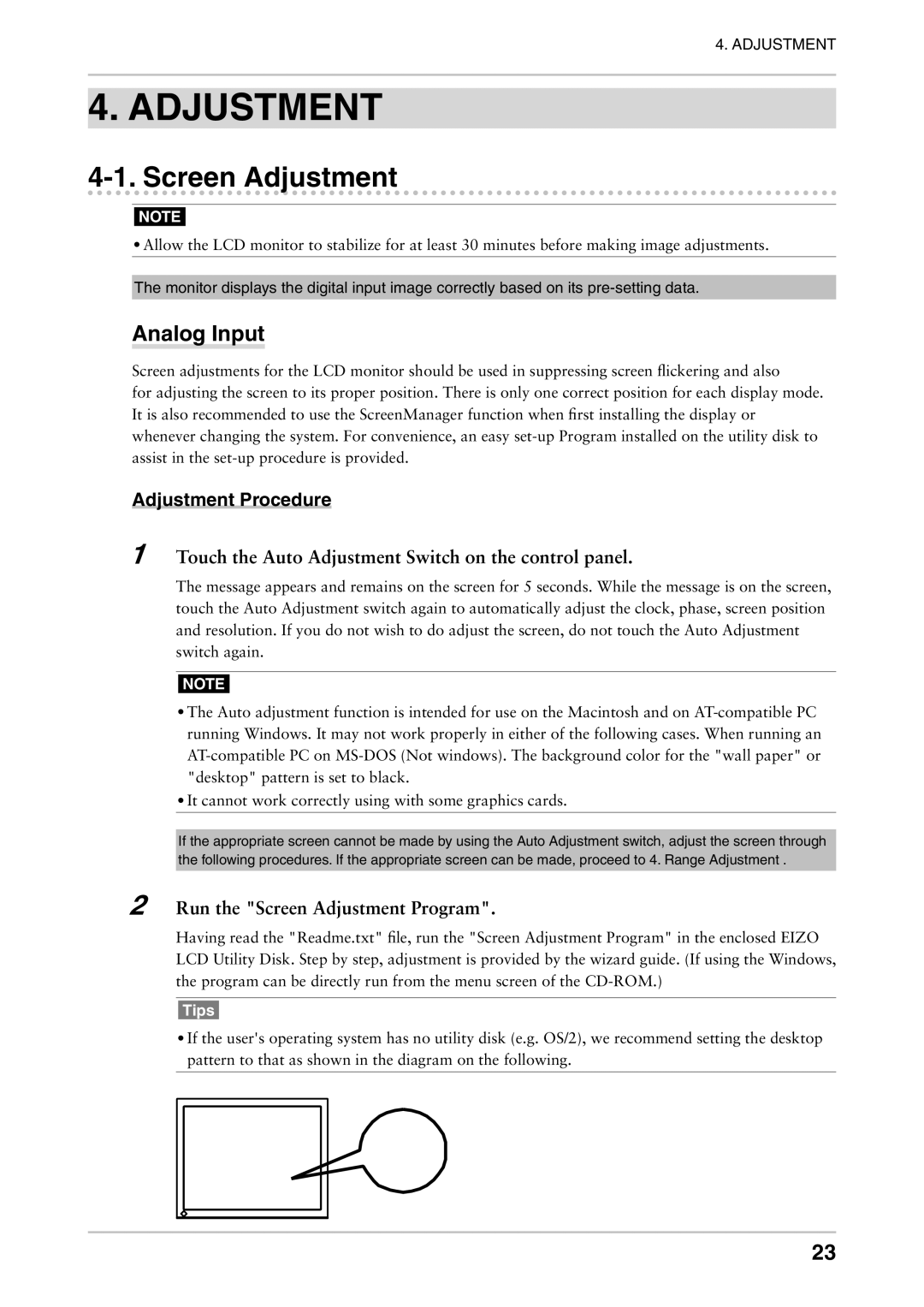
4. ADJUSTMENT
4. ADJUSTMENT
4-1. Screen Adjustment
NOTE
•Allow the LCD monitor to stabilize for at least 30 minutes before making image adjustments.
The monitor displays the digital input image correctly based on its
Analog Input
Screen adjustments for the LCD monitor should be used in suppressing screen flickering and also
for adjusting the screen to its proper position. There is only one correct position for each display mode. It is also recommended to use the ScreenManager function when first installing the display or whenever changing the system. For convenience, an easy
Adjustment Procedure
1Touch the Auto Adjustment Switch on the control panel.
The message appears and remains on the screen for 5 seconds. While the message is on the screen, touch the Auto Adjustment switch again to automatically adjust the clock, phase, screen position and resolution. If you do not wish to do adjust the screen, do not touch the Auto Adjustment switch again.
NOTE
•The Auto adjustment function is intended for use on the Macintosh and on
•It cannot work correctly using with some graphics cards.
If the appropriate screen cannot be made by using the Auto Adjustment switch, adjust the screen through the following procedures. If the appropriate screen can be made, proceed to 4. Range Adjustment .
2Run the "Screen Adjustment Program".
Having read the "Readme.txt" file, run the "Screen Adjustment Program" in the enclosed EIZO LCD Utility Disk. Step by step, adjustment is provided by the wizard guide. (If using the Windows, the program can be directly run from the menu screen of the
Tips
•If the user's operating system has no utility disk (e.g. OS/2), we recommend setting the desktop pattern to that as shown in the diagram on the following.
23
